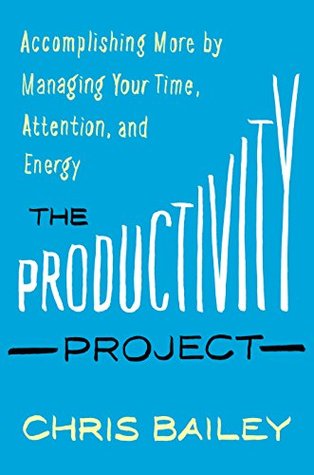More on this book
Community
Kindle Notes & Highlights
by
Chris Bailey
Read between
December 24, 2021 - January 7, 2022
For as long as we can predict, time will continue to tick on at the same rate, but what actually fluctuates on a day-to-day basis is how much energy and attention you have. In the knowledge economy, that’s what makes or breaks how productive you are, and more important, it’s something you can actually control.
But as I discovered during this experiment, there is a third, less obvious option that is much more powerful than spending more time on your work: learn to invest more energy and attention into your work, so you can get the same amount done in a fraction of the time.
The 90 percent rule is simple: when you look at a new opportunity, rank it on a scale of 1-100 on how valuable or meaningful you think it is. If it isn’t a 90 or above, don’t do it.
“Zeigarnik effect” in the late 1920s: incomplete or interrupted tasks weigh on our mind much more than completed tasks.
As Daniel Levitin writes in his book The Organized Mind, “In the see-saw of attention, Western culture overvalues the central executive mode, and undervalues the daydreaming mode.”
The American Psychological Association (APA) recently named nine of the very best stress-relief strategies. Unlike quick fixes like shopping, gambling, drinking, and eating that don’t actually reduce the cortisol levels in your body (the hormone your body produces in response to stress), the nine strategies the organization recommends all actually reduce your cortisol levels. Just as important, most of them also appear, at least on the surface, to flip your brain into mind-wandering mode, which makes them doubly valuable tasks to try when you’re looking to carve out attentional space for
...more
In my opinion, for every minute you meditate, you gain back ten minutes of productivity.
Studies show that what time you wake up has no impact whatsoever on your socioeconomic standing, cognitive performance, or health. As far as your productivity is concerned, it’s what you do with your time after you wake up, and whether you got enough sleep in the first place, that makes the difference.
happier people are 31 percent more productive, have 37 percent better sales figures, have better, more secure jobs, are also better at keeping their jobs, are more resilient, and have less burnout. His research illustrates a profound idea: investing in your happiness and being kind to yourself can have a huge impact on your productivity.
Negative self-talk is absolutely, completely normal. One psychologist, Shad Helmstetter, has found that “seventy-seven percent of everything we think is negative, counterproductive, and works against us.” Another study conducted on business students found that “somewhere between 60 and 70 percent of the average students’ spontaneously occurring thoughts are negative.”
The research backs this up; two studies found that deeper office friendships boost your job satisfaction by about 50 percent, and that you are seven times as likely to be highly engaged at work when your best friend works at the same place.


